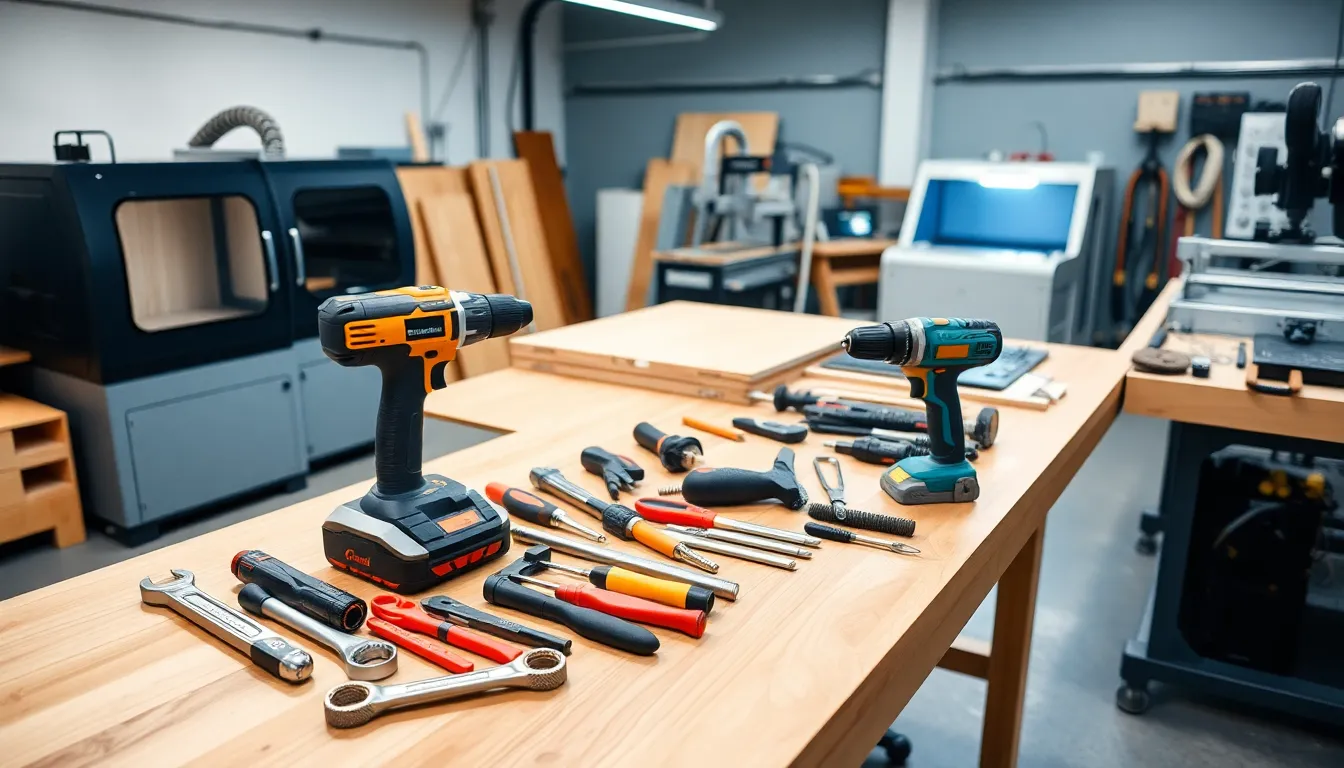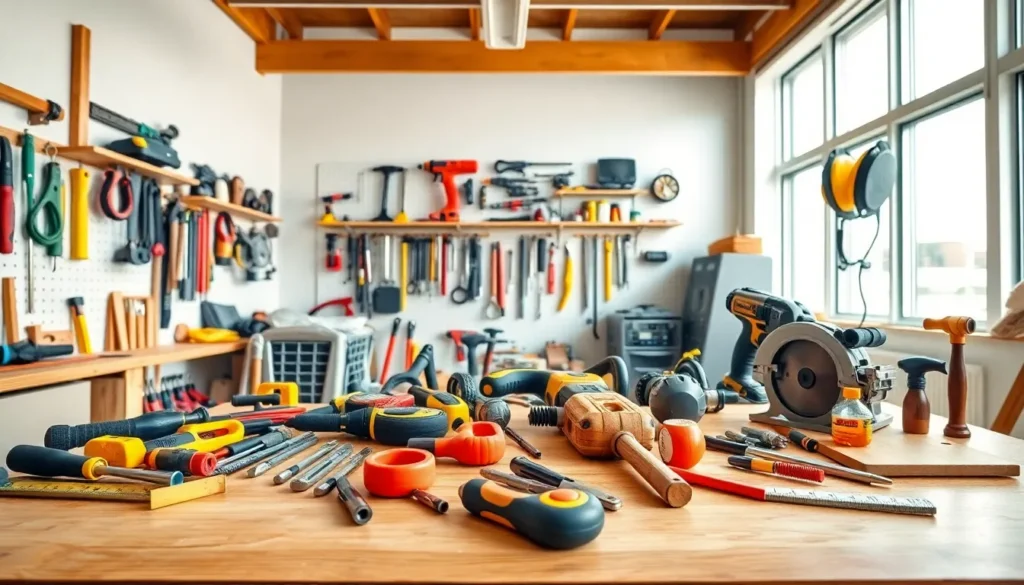Table of Contents
ToggleIn the realm of DIY, having the right workshop tools and equipment can make the difference between a masterpiece and a messy mishap. Imagine embarking on a woodworking project without a trusty saw or trying to fix a leak without a wrench, it’s a bit like trying to dance without music. Fear not. This guide will navigate the essentials of workshop tools and equipment, ensuring you’re well-equipped for your next big project. Let’s jump into the world of hammers, drills, and everything in between.
Types Of Workshop Tools

When it comes to workshop tools, variety is the name of the game. Whether you’re a weekend warrior or a full-time builder, understanding the different categories of tools is crucial.
Hand Tools
Hand tools are the backbone of any workshop. They’re versatile, portable, and typically require little to no setup. Think wrenches, screwdrivers, and hammers. These tools offer precision and can often get into tight spaces or perform intricate tasks that power tools can’t tackle easily.
Power Tools
Power tools revolutionize the workshop experience. They make tasks faster and more efficient. Common examples include drills, saws, and sanders. While they require a bit more safety awareness, when used correctly, they can turn hefty projects into manageable tasks in a fraction of the time.
Specialized Tools
For those who enjoy niche projects, specialized tools can be a game changer. These include equipment like routers, laser cutters, or even CNC machines. They address specific tasks and can elevate a project from amateur to professional quality.
Essential Workshop Equipment
Having the right tools is just one piece of the puzzle: essential workshop equipment is the framework that supports those tools.
Workbench
A sturdy workbench is the heart of any workshop. It’s your workstation, your canvas. A solid surface not only provides stability but also allows for better accuracy during projects. Look for one that suits your size needs and supports your typical tasks.
Tool Storage Solutions
Keeping tools organized can save a lot of time and frustration. From pegboards to tool chests, effective storage solutions ensure that every tool is within reach. Investing in labeling can also enhance your efficiency, as finding the right tool becomes less of a treasure hunt.
Safety Equipment
No workshop is complete without safety gear. Safety goggles, gloves, ear protection, and masks can prevent injuries and health risks. Always prioritize safety over convenience. Remember, a safe workspace is a productive workspace.
Maintaining Your Tools And Equipment
Tools are only as good as the care they receive. Regular maintenance prolongs their life and boosts performance.
Regular Cleaning And Maintenance
Cleaning tools after each use may seem tedious, but it pays off. Dust, debris, and grime can accumulate and hinder the effectiveness of your equipment. A quick wipe down can prevent rust and ensure longevity.
Proper Storage Techniques
Storing tools correctly not only keeps them in good condition but also prevents accidents. Use racks, drawers, and containers to keep everything in its place. Avoid keeping tools in damp conditions to minimize rust and deterioration.
Common Repairs And Troubleshooting
Eventually, tools need repairs. Learn to troubleshoot common issues, like dull blades or power supply failures. Sometimes, a simple blade sharpening or battery replacement can restore functionality.
Choosing The Right Tools For Your Workshop
With countless tools available, selecting the right ones can be overwhelming. But fear not: a systematic approach can ease the process.
Assessing Your Needs
Begin by assessing what type of projects you plan to undertake. Are you into woodworking, electronics, or automotive repair? Each field requires specific tools, so having a blueprint of your goals will guide your shopping decisions.
Budget Considerations
Budgeting is crucial. Quality tools can be an investment. Determine how much you can spend and prioritize essential tools. It’s wise to weigh immediate needs against future capabilities.
Quality Vs. Affordability
Sometimes, it’s tempting to go for cheaper options, but quality often outweighs price. Durable tools not only perform better but also save money over time. Investing in quality tools can lead to better outcomes and fewer replacements.





